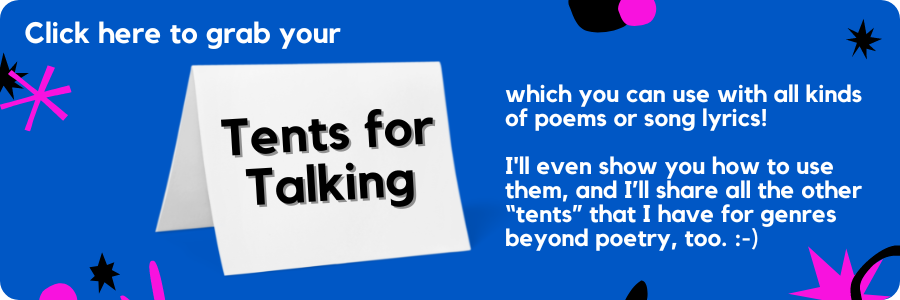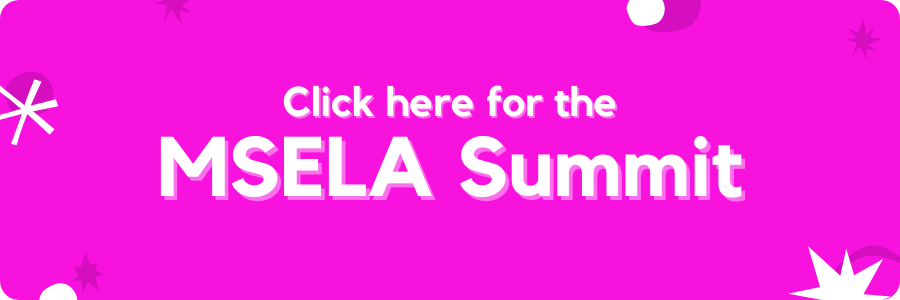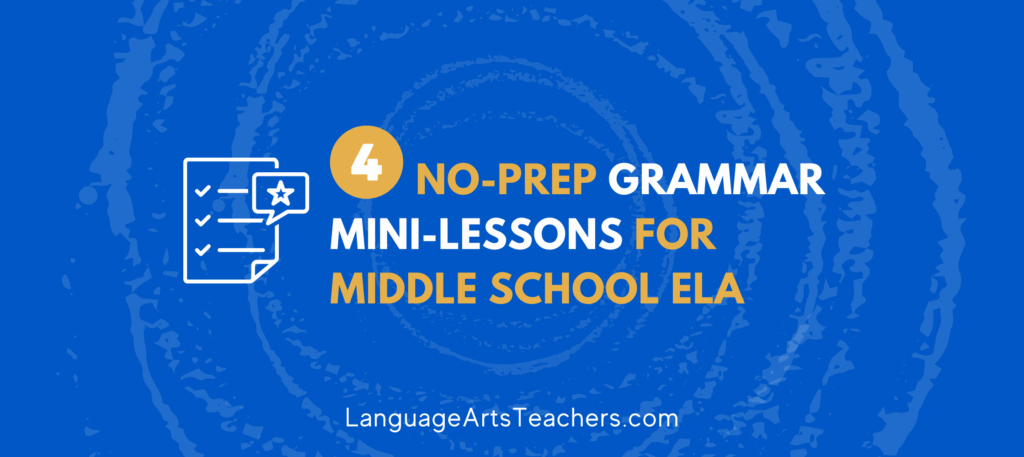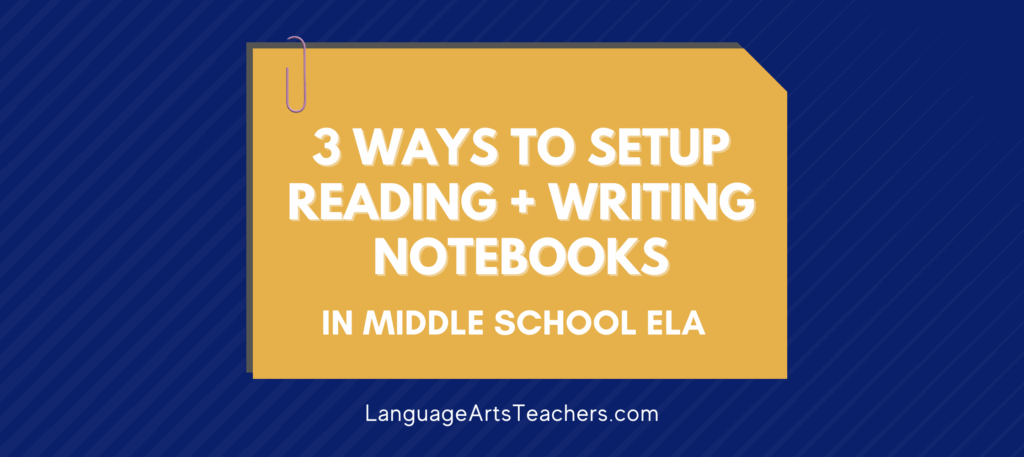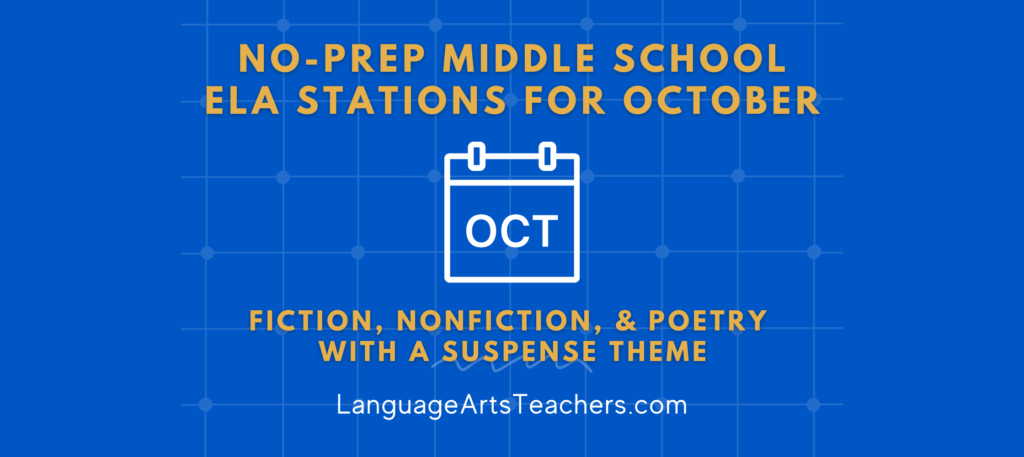Do you want to teach poetry in a way that engages your students and immerses them in a poetry experience that lasts longer than just a random poetry activity? If so, then you’re in the right place!
Creating an immersive, engaging poetry unit is exactly what I sat down to talk about (and later write about below) with guest expert Tanisha Boyd of https://www.teachwithsoul.com/. If you missed our conversation during the MSELA Summit (the virtual conference for Middle School ELA Teachers), then click here to check out all the topics, including how to plan your 6th, 7th, or 8th grade poetry unit).
Here’s what we learned from the MSELA Summit conversation with the Teach With Soul expert Tanisha Boyd:
Getting your students excited and engaged during the poetry unit
As a teacher, if you want your students to be excited about something, you need to also bring the energy. Make sure that your energy is high for the introduction of your poetry unit. Students will start to feel this energy, and it will be contagious. Whether you’re extroverted or introverted (like me!), students can tell whether or not you’re excited and happy to be leading them through a poetry unit.
Think about what “bringing the energy” means for you. If you’re outgoing or if you have a larger-than-life personality, then that might look like playing music as students enter the classroom, or dressing up as a famous poet and performing a dramatic reading. For me as an introvert, however, “bringing the energy” looks like establishing a classroom atmosphere aligned with the beauty of poetry: Perhaps a coffee-shop theme with muted lights, soft music in the background, and “menus” of various sub-genres of poetry for students to choose from.
Next, add some mystery to what you are about to teach. Don’t just come right out and start talking about poetry; instead, allow for some wonder and curiosity from the students. A great way to do this is with music. The majority of your students love music, so this is an excellent way to begin introducing them to the concept of lyrics, verses, and lines of poetry because music already lends itself to that structure.
You can start this even before the unit officially begins; you could use a strategy like Tanisha’s Music Mania Mondays. This is a fun way for students to engage and start learning about poetry without even knowing it.
Here is how it works:
Music Mania Mondays – Monday mornings can be tough for students. They’re coming off a weekend and may not be fully focused on school yet. But what if there was something to look forward to on Mondays? What if Monday was the day when students could share their favorite songs with the class?
Music Mania Mondays is a simple but effective way to get students engaged and excited for the week ahead. On Mondays, students submit their favorite songs for a playlist that the whole class can listen to. This can be done through any streaming service (YouTube is an excellent free option), but it’s important to check the lyrics before adding any new songs to the playlist.
After you create the playlist, you begin to communicate with students and ask them to explain the lyrics and what the song means to them. And when the lyrics are printed out, they will even look like poems – which is another great way to start introducing students to poetry without officially talking about poetry yet.
So if you’re looking for a way to make Mondays more fun and help your students experience poetry in an engaging way, try Music Mania Mondays!
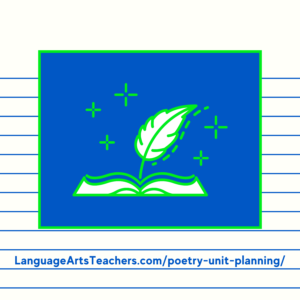
Figuring out which standards and skills to focus on during a poetry unit
When planning a poetry unit, it is important to consider which standards and skills you want your students to focus on. Depending on the pacing of your curriculum, you may have more or less flexibility in what you choose to include.
However, all poetry units should encompass at least some basic understanding of figurative language, author’s purpose, point of view, and the meaning of the text. These concepts form the foundation of any good poetry analysis and will help your students to better appreciate the beauty and depth of poetry.
In addition, it is also important to consider what you want your students to know about poetry itself. What is the surface-level meaning of the poem, and what is the deeper meaning? Helping your students to understand both will ensure that they get the most out of your poetry unit.
Here’s what that can look like when discussing or analyzing poetry with your students:
Surface level: What is happening in the poem (literally, what is actually happening)?
Deeper level: What does this mean for us right now? What is the speaker trying to tell us?
Surface level: Which words show us how the speaker feels?
Deeper level: Why does the speaker use words like . . . instead of just saying . . .?
Surface level: What does the simile in line __ tell us about the topic of the poem?
Deeper level: Why does the author choose to compare ____ to ____ in line __ of the poem?
For specific sentence stems and question stems founded in academic terminology that are also very student-friendly, check out my wildly popular “Tents for Talking” that puts the discussion of poetry on the students while freeing you and them from meaningless, tedious worksheets:
Favorite way to end a poetry unit
An immersive experience is one of the best ways to end a poetry unit. By immersing students in the time period, or the life of a specific writer, they will be able to better understand and remember the material.
For example, Tanisha shared with us during her MSELA Summit session that when studying the Harlem Renaissance, she likes to create a Cotton Club in her classroom. Dress up the room, make a logo, and find a video of the club in its heyday. The atmosphere she creates transports her students to another time and place, and they are able to better understand the culture of the Harlem Renaissance.
How to transition from one unit to the next
There are a few ways to make the transition smoother and less stressful. One way to do this is to bring a piece of the new unit into the old. For example, if you are transitioning from a poetry unit to a drama unit, you could have students create a video for a poem or song. This helps to introduce the new material in an interesting and engaging way.
Additionally, it is important to review the material from the previous unit. This will help students to remember what they have learned and provide a solid foundation for the new material.
Planning out your week when it comes to teaching a poetry unit
Pre-Intro Week: Music can play such an important role in our lives. It can be a source of joy, comfort, or even healing. It can also help us to express our emotions, whether we’re feeling happy, sad, or enraged. Music often articulates our feelings when nothing else can!
When it comes to teaching a poetry unit, incorporating music is a great way to get your students engaged and excited about the subject matter. You can start off the week by having your students share their favorite songs, talking about the most meaningful (to them) songs they know and what specifically it is that makes those songs so impactful. This is where you can lead them in a discovery of the songwriter’s word choice, central message (theme), tone, imagery, and all the elements of poetry . . . But super accessible, relevant, and engaging because at this point, we’re just letting them talk about music that is meaningful to them!
This will help to get them thinking about the role that music plays in their lives and how the lyrics communicate certain messages in certain ways.
Intro Week: During the first week of the unit, you can introduce the concept of poetry and have students explore different types of poems. You can also make connections to music by looking at song lyrics and discovering examples of figurative language along with how figurative language conveys meaning better and more deeply than without the use of figurative language.
This will help set the stage for the rest of the unit and ensure that your students have a strong foundation on which to build their knowledge.
The Soul of a Poet: When analyzing a poem, it is important to look at the author’s purpose and point of view. These elements can be helpful in understanding the main concept the speaker is trying to convey.
For example, in Carrie Underwood’s song “Before He Cheats,” the narrator is describing a vengeful act she plans to take against her cheating partner. The purpose of the song is to explore the emotions of betrayal and anger. The point of view is first person, which allows the listener to empathize with the narrator’s hurt and frustration.
In contrast, Paul Laurence Dunbar’s poem “We Wear the Mask” takes a more universal perspective on hiding one’s true feelings. The speaker uses the metaphor of a mask to describe how we put on a false face for the world, even when we are hurting inside. The purpose of the poem is to encourage people to be honest about their emotions and to reach out for help when they are struggling.
By looking at the author’s purpose and point of view, we can gain a deeper understanding of a speaker’s message, while thinking through what our own ideas are about a given topic.
Poetry Unit Planning Conclusion
When it comes to poetry, there is no one exact right way to teach it. However, by using an immersive poetry experience with music, teachers can help their students become engaged and enthusiastic about the poetry genre. It will also be so much more fun for you as a teacher, and students will feed off of your excitement.
Get all the strategies and plans you need for Middle School ELA from the 5-day virtual conference I host specifically for 6th, 7th, and 8th Grade Reading & Writing Teachers! It’s the MSELA Summit, and it has 30 hours of on-demand sessions (and PD Certificates!) for you about unit planning, tech tools, classroom management, reading and writing strategies, and more that you can use all year long.

